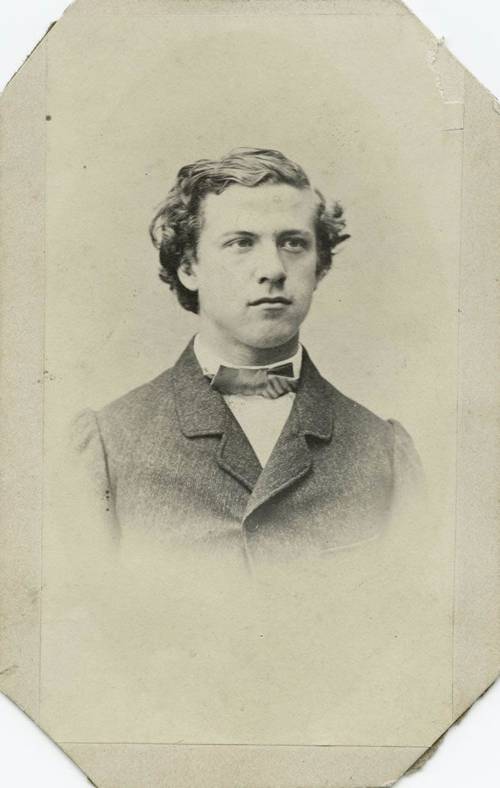
FAQ About Karl Benz

Who was Karl Benz?
Karl Benz was a German engineer and inventor, best known for creating the first practical automobile, the Benz Patent Motorcar, in 1885/1886. His work laid the foundation for the modern automotive industry, marking a significant milestone in the field of transportation technology.

What was the Benz Patent Motorcar?
The Benz Patent Motorcar, also known as the Benz Patent-Motorwagen, was the world's first automobile designed to be powered by an internal combustion engine. It was developed by Karl Benz in 1885 and patented in 1886. The vehicle featured a single-cylinder, four-stroke engine and a distinct three-wheel design.

When was the first automobile patented?
The first automobile, the Benz Patent Motorcar, was patented on January 29, 1886. Karl Benz filed the patent under the number DRP 37435, marking it as the beginning of the modern automotive era.

What were the unique features of the Benz Patent Motorcar?
The Benz Patent Motorcar featured several innovative elements, including a single-cylinder, 954 cc engine capable of producing 0.9 horsepower. It also had a rear-mounted engine and a differential gear, setting it apart from other vehicles of its time. The design emphasized reliability with minimal complex mechanisms.

How did Karl Benz's invention change transportation?
Karl Benz's invention of the automobile revolutionized transportation by making it more personal and flexible. It allowed people to travel independently, covering longer distances faster and more comfortably than horse-drawn carriages. This paved the way for the automotive industry to grow and expand globally, fueling further innovations.

Where was Karl Benz born?
Karl Benz was born in the town of Karlsruhe, in present-day Germany, on November 25, 1844. He spent much of his early life in this region, which was part of the Grand Duchy of Baden at the time.

Did Karl Benz found any companies?
Yes, Karl Benz co-founded the company Benz & Cie in 1883, which eventually became one of the largest automobile manufacturers in the world. Alongside his work with Benz & Cie, he also established Benz & Company Rheinische Gasmotoren-Fabrik, contributing significantly to the automotive industry's development.

What challenges did Karl Benz face in developing the automobile?
Karl Benz faced numerous challenges while developing the automobile, including technical difficulties with early engine designs and skepticism from investors and the public. Despite these hurdles, his dedication and innovative spirit led him to successfully create a reliable vehicle prototype that gained acceptance over time.

How was the public's initial reaction to the Benz Patent Motorcar?
Initially, the public was skeptical of the Benz Patent Motorcar. Many were accustomed to horse-drawn carriages and viewed the idea of a vehicle powered by an engine as impractical and noisy. However, as the benefits of the automobile became evident, public perception gradually shifted to embrace this new technology.

Did Karl Benz receive recognition during his lifetime?
Karl Benz received considerable recognition during his lifetime for his contributions to automotive engineering. Notably, he was inducted into the Automotive Hall of Fame in 1984. His achievements were celebrated not only by peers within the industry but also by society at large, notably through his innovative breakthroughs.

What is Karl Benz's legacy in the automotive industry?
Karl Benz's legacy is profound; he is widely regarded as one of the founding figures of the modern automotive industry. His pioneering efforts in developing the internal combustion automobile set the stage for future advancements, influencing countless engineers and designers and leading to the widespread adoption of automobiles globally.

What other inventions did Karl Benz create?
Beyond the automobile, Karl Benz held patents for various innovations, including several engine components and other mechanical devices. His work encompassed improvements to two-stroke and four-stroke engine designs, gear systems, and other aspects of automotive technology, showcasing his broad engineering expertise.

How did Bertha Benz contribute to Karl Benz's success?
Bertha Benz, Karl's wife, played a crucial role in the success of the Benz Patent Motorcar. In 1888, she undertook the first long-distance journey in an automobile, driving from Mannheim to Pforzheim with her sons. This trip demonstrated the practicality and reliability of the vehicle, bringing significant public attention and credibility to Benz's invention.

What educational background did Karl Benz have?
Karl Benz studied mechanical engineering at the Karlsruhe Polytechnic School, graduating in 1864. His education provided him with a strong foundation in engineering principles, which he applied in his various inventions, particularly in the development of the internal combustion engine and the automobile.

How did Karl Benz's early career shape his later inventions?
Karl Benz's early career included working for various engineering companies and engaging in projects related to mechanical and electrical engineering. This experience provided him with valuable insights into mechanical systems and engineering design, which he later applied to his pioneering work in automobile design and manufacturing.

What impact did Karl Benz have on German industry?
Karl Benz significantly impacted German industry by leading advancements in mechanical engineering and automotive production. His work not only bolstered Germany's reputation as a center for innovation but also spurred economic growth through the expansion of the automotive industry, providing jobs and exporting German engineering expertise worldwide.

Were there any competitors to the Benz Patent Motorcar at the time?
At the time of the Benz Patent Motorcar's creation, there were few true competitors in the personal automobile space. However, shortly after Benz's success, figures like Gottlieb Daimler and Wilhelm Maybach began working on similar concepts. Together, these pioneers helped shape the burgeoning automotive industry.

How did Karl Benz's innovations influence future automobile designs?
Karl Benz's innovations, particularly the integration of internal combustion engines into a carriage design, set the standard for future automobile development. His emphasis on reliable engineering and practical design established principles that informed automotive evolution throughout the 20th century and beyond.

What was the significance of the Benz & Cie company's growth?
The growth of Benz & Cie was significant because it demonstrated the commercial viability of the automobile and helped establish the car manufacturing industry. As one of the first companies to mass-produce automobiles, Benz & Cie set benchmarks for production methods, quality, and distribution in the automotive sector.

How did Karl Benz's work inspire future engineers and inventors?
Karl Benz inspired future engineers and inventors by showcasing how perseverance and innovation could overcome technical and societal barriers. His success motivated others to explore and expand upon his ideas, leading to countless technological advancements in automotive engineering and related fields worldwide.
